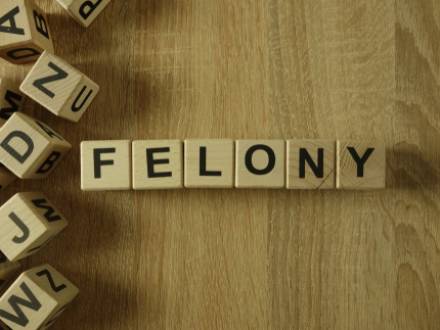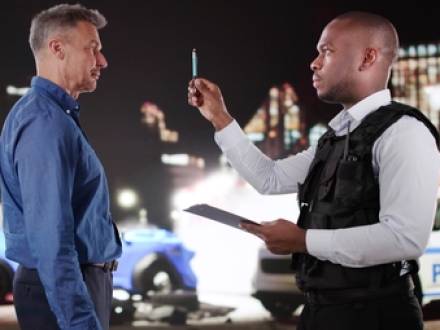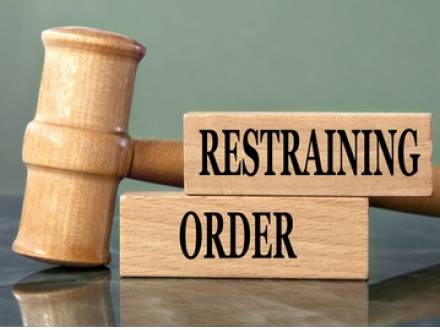Recent Blog Posts
What to Expect From a Criminal Mischief Charge
 While criminal mischief might sound like a minor offense, it can come with serious penalties depending on the exact nature of the allegations. The penalties for this offense range from misdemeanor to felony punishments, which means that the prosecutor could seek a sentence of years of incarceration. To protect your rights in a criminal mischief charge, be sure to get in contact with a Denton County, TX criminal defense lawyer.
While criminal mischief might sound like a minor offense, it can come with serious penalties depending on the exact nature of the allegations. The penalties for this offense range from misdemeanor to felony punishments, which means that the prosecutor could seek a sentence of years of incarceration. To protect your rights in a criminal mischief charge, be sure to get in contact with a Denton County, TX criminal defense lawyer.
Fighting a charge of criminal mischief requires a close review of the events leading up to your arrest. At Magaña & Van Dyke, we have the skills and resources to investigate your case, drawing on decades of legal experience to develop a comprehensive defense strategy.
What Is Criminal Mischief Under Texas Law?
Every state has its own interpretation of what constitutes criminal mischief. Under Sec. 28.03 of the Texas Penal Code, criminal mischief is a property crime that involves intentionally or knowingly damaging another person’s property without his or her permission. The law provides multiple definitions of criminal mischief, including tampering with property, causing monetary loss through property damage, and defacing property with graffiti or drawings.
The Long-Term Impact of a Felony Conviction
 Felony charges should always be taken seriously, as they have the potential to impact the rest of your life if you are convicted. Compared to misdemeanors, felony offenses have longer jail sentences due to the gravity of the crimes. If you have been arrested for a felony, whether for a violent offense, a white collar crime, or something else altogether, a Cooke County, TX criminal defense lawyer can help.
Felony charges should always be taken seriously, as they have the potential to impact the rest of your life if you are convicted. Compared to misdemeanors, felony offenses have longer jail sentences due to the gravity of the crimes. If you have been arrested for a felony, whether for a violent offense, a white collar crime, or something else altogether, a Cooke County, TX criminal defense lawyer can help.
At Magaña & Van Dyke, we have successfully defended many clients accused of felony charges. While our past results are not a guarantee of future results, you can rest assured that when you work with our firm, your case will be handled by an experienced, aggressive attorney fighting on your behalf.
Criminal Penalties for a Felony Conviction in Texas
In Texas, felony crimes are sorted into degrees according to the severity of the offense. These degrees are as follows:
How Serious Is Resisting Arrest in Texas?
 Being detained by police can be an extremely stressful experience, and in the heat of the moment, many people panic or make mistakes. If you have been charged with resisting arrest, you may face additional penalties that can enhance your sentence. To protect yourself from the most dire consequences, consider working with a Denton County, TX criminal defense lawyer.
Being detained by police can be an extremely stressful experience, and in the heat of the moment, many people panic or make mistakes. If you have been charged with resisting arrest, you may face additional penalties that can enhance your sentence. To protect yourself from the most dire consequences, consider working with a Denton County, TX criminal defense lawyer.
At Magaña & Van Dyke, our attorneys have helped people accused of many misdemeanor and felony crimes, including violent offenses. We will give your case a close review, going over possible defense strategies and exploring other ways to minimize a charge of resisting arrest.
What Qualifies as Resisting Arrest?
It is not always clear as to what does and does not count as "resisting arrest" during a heated encounter with law enforcement. Under state law (Texas Penal Code Sec. 38.03), the offense is defined as intentionally stopping or obstructing a peace officer from carrying out an arrest by using force. You could also face charges of resisting arrest for using force to stop a police officer from carrying out a search, regardless of whether or not the search was lawful.
Possible Defenses Against a DWI Charge
 A charge of driving while intoxicated (DWI) in Texas can be very stressful to deal with. If convicted of this charge, you face not only the threat of incarceration, but the suspension of your license as well. However, an accusation of DWI does not necessarily mean that you are guilty. A Cooke County, TX drunk driving defense lawyer can help you fight these charges, exploring different legal strategies suited to your case.
A charge of driving while intoxicated (DWI) in Texas can be very stressful to deal with. If convicted of this charge, you face not only the threat of incarceration, but the suspension of your license as well. However, an accusation of DWI does not necessarily mean that you are guilty. A Cooke County, TX drunk driving defense lawyer can help you fight these charges, exploring different legal strategies suited to your case.
At Magaña & Van Dyke, we have prior experience handling allegations of DWI, and we have successfully gotten charges dismissed for a repeat DWI. You can count on our firm to provide you with strong counsel and representation throughout your case as we seek the best possible outcome.
Three Possible Defenses for a Drunk Driving Charge in Texas
The best defense for a drunk driving charge should be carefully tailored to your individual circumstances. Our firm can meet with you to discuss the details of your case and develop an individualized defense strategy.
Fighting Allegations of Teacher/Student Relationships
 As a teacher, an accusation of inappropriate conduct with a student can destroy your career. Not only that, but you could face serious penalties in a criminal court of law. To protect your future, get in contact with a Denton County, TX criminal defense lawyer with experience handling sex crimes.
As a teacher, an accusation of inappropriate conduct with a student can destroy your career. Not only that, but you could face serious penalties in a criminal court of law. To protect your future, get in contact with a Denton County, TX criminal defense lawyer with experience handling sex crimes.
At Magaña & Van Dyke, we understand how serious it is to be accused of having an improper relationship with a student. Our firm can provide you with comprehensive legal support to combat damaging allegations and defend you in court. We have decades of experience in criminal defense, and in the past, we have represented clients accused of serious sex crimes.
Penalties for an Improper Teacher/Student Relationship
Texas law defines an improper teacher/student relationship as "engaging in sexual contact, intercourse, or deviate sexual intercourse" with someone enrolled in a primary or secondary school while working as an employee for that school (Texas Penal Code Sec. 21.12). This does not just include teachers, but teacher interns, educational aides, administrators, school counselors, and other employees in a school district.
Responding to a Restraining Order in Texas
 Finding out that a restraining order has been issued against you can be an incredibly stressful experience. An ex parte restraining order can entail the immediate loss of certain privileges, and violating the order could result in criminal penalties. In these situations, knowing how to react and what steps to take is critical for your case. With the help of a Cooke County, TX criminal defense lawyer, you can challenge a restraining order in court and protect your rights.
Finding out that a restraining order has been issued against you can be an incredibly stressful experience. An ex parte restraining order can entail the immediate loss of certain privileges, and violating the order could result in criminal penalties. In these situations, knowing how to react and what steps to take is critical for your case. With the help of a Cooke County, TX criminal defense lawyer, you can challenge a restraining order in court and protect your rights.
At Magaña & Van Dyke, we have experience representing clients accused of family violence and similar offenses in Texas. Our attorneys are available 24/7 for client concerns, so do not wait to reach out if you have had a restraining order issued against you.
Can I Talk to My Ex if They File a Restraining Order?
Understandably, people who have been served with an ex parte restraining order often want to clear things up with the other party. Although it might seem rational to try to talk out the issue, this can hurt your case in more ways than one.
Aggravating Factors in Texas Assault Charges
 A conviction of assault can have dire legal consequences, even in seemingly minor incidents. If certain aggravating factors are present, however, an incident could result in increased penalties or even felony charges. These factors are known as aggravating circumstances, and in an assault case, they could mean the difference between a few months versus a few years of incarceration.
A conviction of assault can have dire legal consequences, even in seemingly minor incidents. If certain aggravating factors are present, however, an incident could result in increased penalties or even felony charges. These factors are known as aggravating circumstances, and in an assault case, they could mean the difference between a few months versus a few years of incarceration.
At Magaña & Van Dyke, we understand the gravity of an assault charge. Our Denton County, TX criminal defense lawyers can assess your case and work out a strategy to minimize the charges against you. In fact, we have a history of successfully defending clients in assault charges, including a "not guilty" verdict for a client accused of felony aggravated assault in Denton.
What Is Assault?
According to Chapter 22 of the Texas Penal Code, you can face assault charges for committing any of the following acts in an "intentional, knowing, or reckless" manner:
Common Firearm Offenses in Texas
 The Lone Star State respects the rights of responsible gun owners. However, there are many regulations that, if violated, could result in you facing criminal charges. If you have been accused of a weapons offense in Texas, the smartest thing you can do is to seek out legal representation. A Cooke County, TX gun crime defense attorney can stand up for your rights and protect you in court.
The Lone Star State respects the rights of responsible gun owners. However, there are many regulations that, if violated, could result in you facing criminal charges. If you have been accused of a weapons offense in Texas, the smartest thing you can do is to seek out legal representation. A Cooke County, TX gun crime defense attorney can stand up for your rights and protect you in court.
Many weapons offenses are the result of simple mistakes or errors in judgment. At Magaña & Van Dyke, we recognize that many otherwise responsible gun owners can get caught up in serious charges. To remedy your situation, we will pursue the best outcome possible with a strong legal defense.
The Penalties for Lying to a Gun Vendor
A small misrepresentation or omission of fact when buying a gun could have serious consequences. Under the Texas statute for the unlawful transfer of certain weapons, you could be charged with a crime for knowingly making a "material false statement" to a firearms dealer while you are prohibited from owning a gun.
Should I Pay the Fine for a Misdemeanor Charge?
 If you have received a citation for a Class C misdemeanor like public intoxication or disorderly conduct, you might be tempted to simply pay the fine. A penalty of a few hundred dollars may not seem like much, but the consequences can follow you for years to come.
If you have received a citation for a Class C misdemeanor like public intoxication or disorderly conduct, you might be tempted to simply pay the fine. A penalty of a few hundred dollars may not seem like much, but the consequences can follow you for years to come.
To protect your future, the best thing you can do is to seek out legal representation. A Denton County, TX criminal defense lawyer can go over your options to fight a public intoxication or disorderly conduct charge. At Magaña & Van Dyke, we have defended clients against a wide range of offenses, ranging from minor misdemeanors to serious felonies. When you work with our firm, we will do everything in our power to mitigate the charges against you.
Exercising Your Rights After an Arrest
 Getting arrested for a criminal offense can be a disorienting experience. From the moment of your detainment, you may feel increasing pressure and stress. You might even feel powerless. However, you still have rights that you can and should exercise. Whatever charges you face, the best thing you can do is to get in contact with a Denton County, TX criminal defense lawyer.
Getting arrested for a criminal offense can be a disorienting experience. From the moment of your detainment, you may feel increasing pressure and stress. You might even feel powerless. However, you still have rights that you can and should exercise. Whatever charges you face, the best thing you can do is to get in contact with a Denton County, TX criminal defense lawyer.
At Magaña & Van Dyke, we have years of experience handling serious misdemeanor and felony charges on behalf of our clients. Our firm can inform you of your rights and stand up for you throughout your case, making sure you are fairly represented.
Knowing Your Miranda Rights
The Fifth Amendment protects you from self-incrimination. This means that you have a right to remain silent while in police custody. Whether you are in the back of a police car or inside an interrogation room, saying nothing is one of the best ways to protect yourself.






